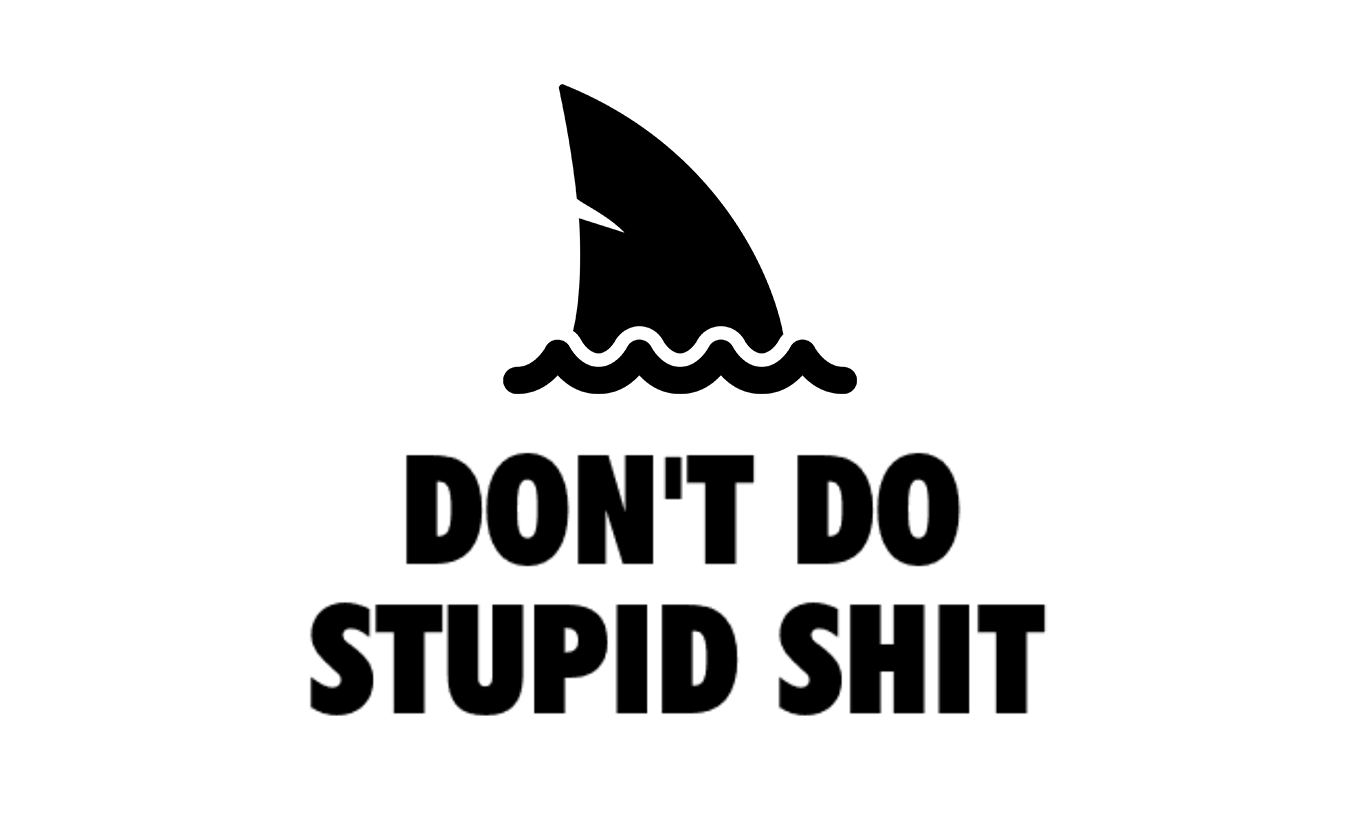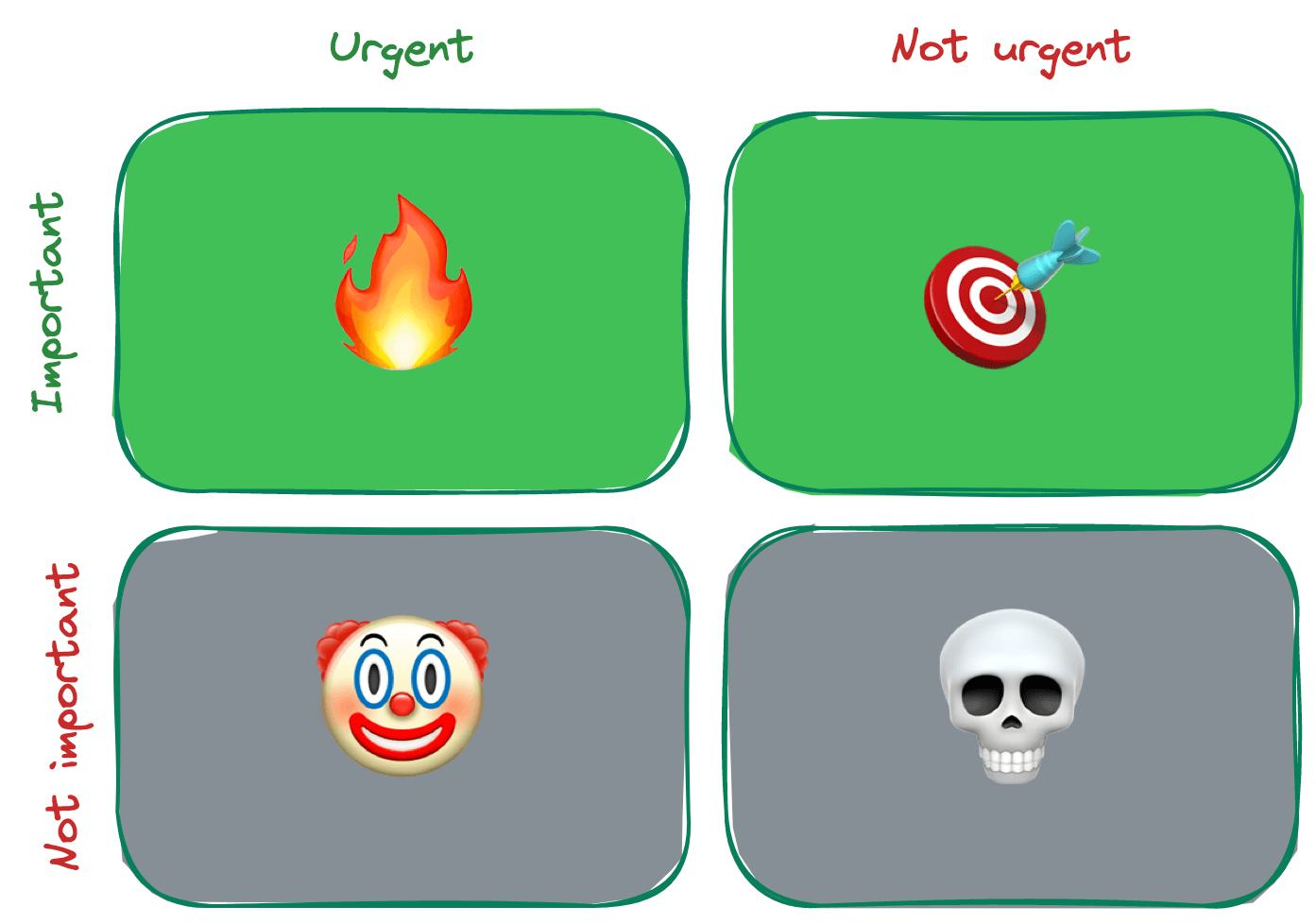Don't do stupid shit

Sometimes you win, sometimes you lose.
It's easy to be motivated on Monday and work through the whole to-do list, only to barely start the first task on Friday.
What's the alternative?
Don't do stupid shit.
The formula
The entire formula is a combination of two elements:
Don't do stupid shit
=
It's easier not to do than to do
+
A little bit of time travel
Looks a little vague? Let's get into details.
It's easier not to do than to do
When I was doing monthly challenges in 2021, I realized that the goals to "stop doing something" were much easier than the goals to "do more of something." Much, much easier. Even the goals that I thought would be hard, like zero sugar or zero news, required a fraction of the effort compared to some "do more of" goals.
Takeaway: to make your life easier, convert as many as possible "do this" tasks into the "stop doing" kind of goals.
It's easier not to do something than to do it. Even if it's the same task, even only changing the narrative from "Do X" to "Don't do the opposite of X" helps a lot.
A little bit of time travel
For the formula to work, it also requires a little time travel. How so? Let's see an example.
I need to do something important, but I feel tired and feel a strong urge to postpone it till tomorrow. I deliberate, negotiate with myself, and conclude that even though it's not ideal, I can do it tomorrow. Today, I chill.
There are a couple of forces at play here.
First, the reward for not doing a hard thing is immediate. The cost of not doing it, even if it's potentially much larger than today's reward, is in the future.
Second, I can make this trade-off because, psychologically, I will be getting the reward, but someone else will pay the cost.
We treat our future self as if it's another person. If someone else will have to do it tomorrow instead of me, let them do it. If it's not me paying the price, that's not my problem.
When the benefit of procrastination is consumed immediately (I don't have to do the hard thing and I can just relax now) and the cost is believed to be paid by someone else (because "future me" is perceived as a stranger), it's easy to choose something that has all the pros and no cons. It takes an enormous amount of willpower to do the opposite.
Unless... I can somehow trick my brain into recognizing the future me as myself.
For the time travel to work, I need to recognize that the person tomorrow is me, not someone else.
When the future self shares similarities with the present self, when it is viewed in vivid and realistic terms, and when it is seen in a positive light, people are more willing to make choices today that may benefit them at some point in the years to come.
Source: Future self-continuity: how conceptions of the future self transform intertemporal choice
I realized this some time ago and wrote about it in My new best friend, where I described how my future me turned from a stranger into my new best friend.
The more clearly we can see ourselves in the future, the more evident will be the stupidity of postponing something important for a small but immediate benefit.
Examples
Situation: I need to do something important but I feel tired and feel a strong urge to postpone it till tomorrow.
Before applying "don't do stupid shit": I optimistically imagine tomorrow as a perfect day without distractions, and I'm sure tomorrow's version of me will be rested, motivated, and with plenty of time. It makes it easy to postpone whatever I had for today till tomorrow.
After applying "don't do stupid shit": I don't fool myself. I know that tomorrow I'll have even less time, I'll be even more tired, and I'll have even much to do because, on top of tomorrow's tasks, I'll also have to do today's tasks. I realize it's stupid to do otherwise, so I do today what I wanted to postpone till tomorrow.

Situation: Important-not-urgent tasks. You've always wanted to do these tasks, but there were always more important and urgent things to take care of first.
Before applying "don't do stupid shit": Put out fires. Do urgent tasks instead, never advancing to the top-right quadrant.
After applying "don't do stupid shit": Realize the stupidity of only putting out fires and not building for the long term. Let them burn—start building.
Summary
Part 1: It's easier not to do something than do it. Even if it's the same task, changing the narrative from "Do X" to "Don't do the opposite of X" makes a huge difference.
Part 2: Make your future self closer to you. Resist your brain's tendency to fool yourself that tomorrow's you is a different person.
And that's it! There's nothing more to it. It's all about the narrative and changing the story.
This message by Charlie Munger, Warren Buffet's legendary business partner, highlights a similar pattern of focusing on avoiding the negative rather than striving for the positive:
"It is remarkable how much long-term advantage people like us have gotten by trying to be consistently not stupid, instead of trying to be very intelligent."
I feel almost embarrassed even to write all this, but if I came to some conclusion that helped me, not writing about it would be stupid, wouldn't it? So I'm not being stupid, and this article is the outcome.
